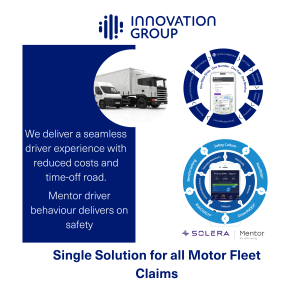Emotional Intelligence (E.I.) is becoming vital if you want to get ahead in your career. In 2017, the World Economic Forum called it a “critical factor that sets star performers apart”.
Furthermore, a national survey once revealed that employers are 59 percent more likely to hire and/or promote someone with high E.I. despite having a relatively low I.Q.
But what exactly is E.I.? Why is it so critical in navigating the workplace successfully? And why do hiring managers put a premium on this characteristic when it comes to career advancement? Let’s explore it below.
E.I. at a glance
“E.I. is defined as the ability to identify and manage an individual’s emotions while understand how it effects and relates to that of others. They also use emotional understanding in making sound decisions, solving problems, and communicating with others.
According to Daniel Goleman, author of the 1995 best-selling book Emotional Intelligence, E.I. has five core components:
- Self-awareness or the ability to recognize and understand your moods and emotions and how they affect others
- Self-regulation or the ability to control impulses and moods
- Internal motivation or the drive to pursue goals for personal reasons rather than some form of reward
- Empathy or the ability to recognize and understand the motivations of other people
- Social skills or the ability to manage relationships and build networks
E.I. in the workplace
Every workplace is composed of a different set of personalities, skills, strengths, and emotions. This makes E.I. a core component of building and driving successful teams. It is also a critical characteristic not only in employees but most especially in leaders.
A high level of E.I. allows people to understand their strengths and weaknesses, so they are excellent at handling and learning from constructive criticism.
They can also express emotions with restraint and control. This self-regulation allows employees to handle stressful situations like deadlines and conflicts efficiently.
Also, they are empathetic towards their colleagues so they can build rapport and trust quickly. They respect others around them so they avoid power struggles, backstabbing, and other harmful behaviours that can affect team dynamics negatively.
Those with high E.I. also make for excellent communicators and active listeners.
For leaders, E.I. allows them to effectively motivate, inspire, and earn the trust of their teams. This makes them an excellent mentor and figurehead in the organisation. They can also foster flexibility and creativity in the workplace which helps increase productivity overtime.
Leverage E.I. Training Today
Everyone can benefit from improving aspects of their emotional intelligence whether it’s their self-awareness, self-regulation, empathy, social skills, or motivation.
The Australasian Fleet Management Association (AfMA), together with Careers Advice founder and CEO Lisa Panarello will be holding a 4-part professional development series centred on E.I. in the workplace.
Through this series, participants will be able to learn:
- How to have a heightened level of self-awareness and awareness of others
- How to handle challenging interpersonal situations
- The benefits of active listening and empathy
- How be accountable for achieving business objectives
Each part of the series is a one-hour webinar that will cover topics such as Dealing with Difficult People, Gearing Up for Performance Reviews, The Power of Saying No, and Networking with a Purpose.
Click this link for more information about the Emotional Intelligence PD series or to sign up for free today!




















